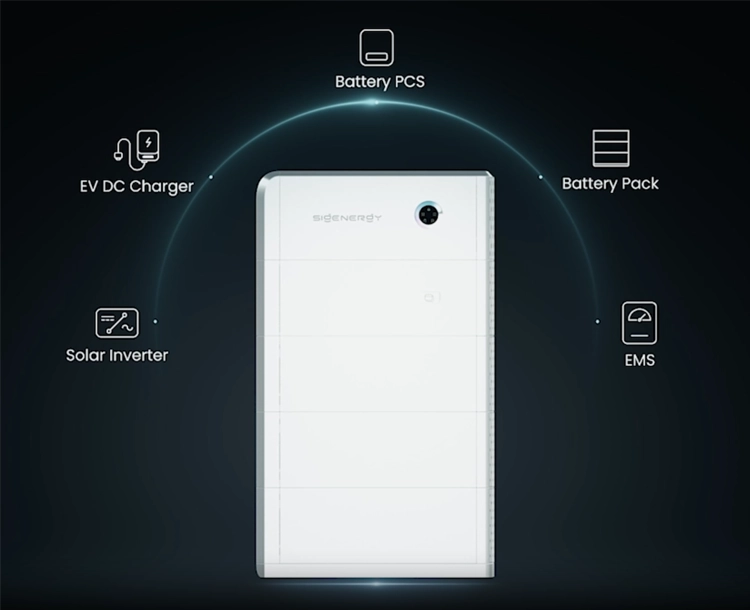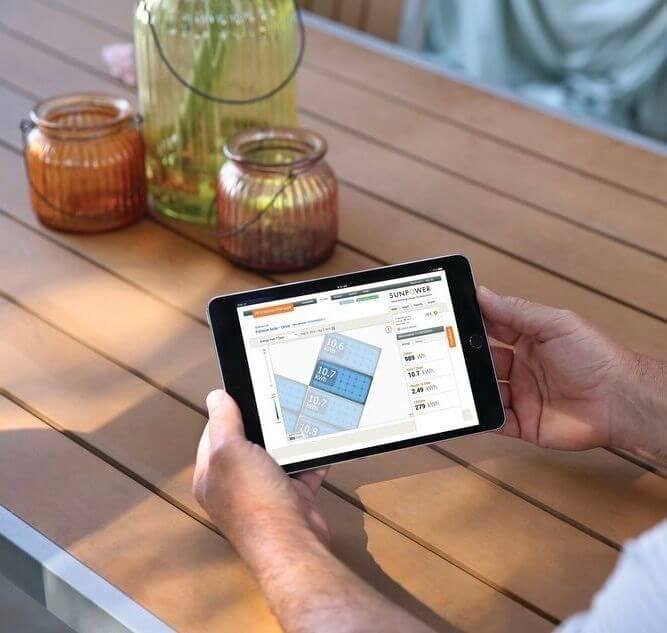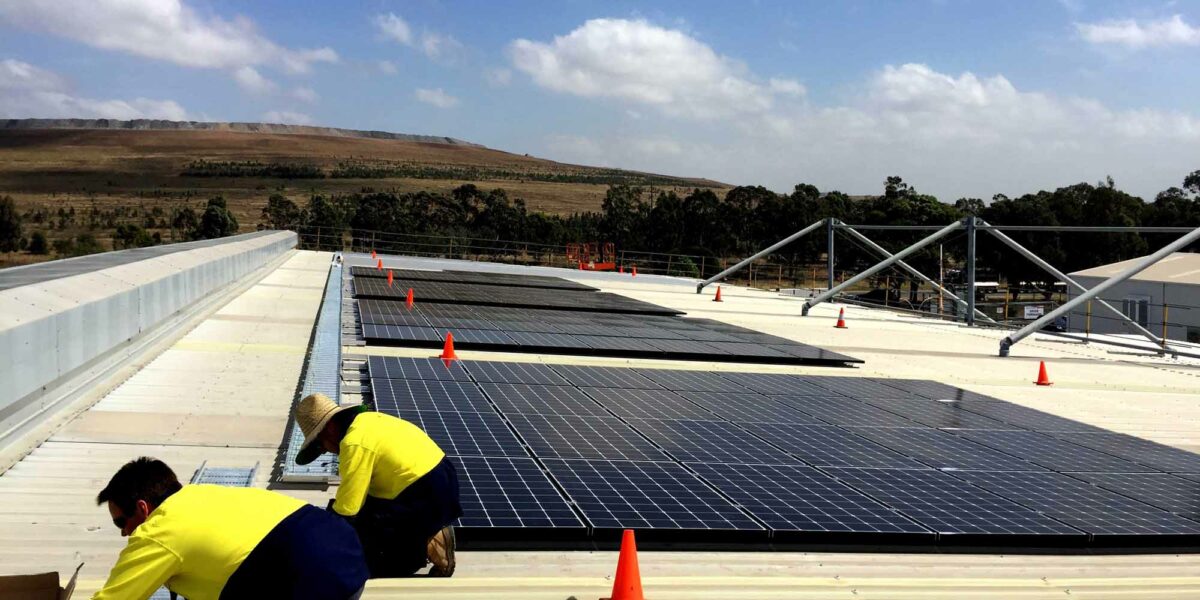Going Off-Grid with Solar Power
- Logan Haggerston
Have you ever dreamt of going off-grid?
Would you love to be completely self-sufficient and unrestricted by modern life?
If so, you’re in the right place. But what does off-grid living involve?
With the advancements of battery-based storage technology, it’s now possible to store power that’s generated by solar systems. But, is your house ready to be self-sufficient? Here, we’ll take a look at what it means to have an off-grid home and whether it’s right for you. Let’s jump in.
What Does “Going Off the Grid” Mean?
An “off-grid life” refers to a business or home that can produce and store enough renewable energy to meet its electricity needs. This means you could be disconnected from the power grid and battery-based storage has a big part in this. Let’s take a look at living off the grid by using solar energy.
Can You Go Completely Off-Grid Using Solar Energy?
Although the sun’s power is efficient and free, the initial expense of setting up a completely solar-powered residence can be daunting. Additionally, you may encounter bad weather, which can affect your plans to live exclusively off the sun.
Even though making plans to run your home or business on solar power does involve considerable mental and financial investments, it is doable.

Solar Equipment You Will Need to Go Off the Grid
Solar Panels
The first thing you need for a solar-powered home is solar panels. A 5-6kW system comprised of 15-20 panels is typically enough to power an average Australian home. A 5kW system requires roof space of around 25.5-34m2
How many panels you’ll need depends on how much electricity you use and your budget. A 6kW system typically costs between $6,000-8,000 in most Australian states.
Solar Power Inverters
An important, but not commonly thought of, part of a solar system is an inverter. It acts as a gateway between the PV (photovoltaic) system and the appliances that draw energy from the sun.
Generally, you’ll need to match your inverter to the wattage levels of your solar panel. For example, if you have a 3000-watt system, you’ll need an inverter with 3000 watts. Prices for inverters generally start at $1,000, with premium models being more expensive.
Solar Battery Storage System
Next, to give up grid energy, you’ll need solar batteries. With batteries, you’ll be able to store the energy created by your system, to be used later. For an average-sized home, you would need two batteries to make a reliable storage arrangement.
You can expect each one to start at around $5,000, but if your home is larger or you use a lot of power, expect to pay more for batteries that are capable of meeting your energy needs.
Energy-Efficient Lighting and Appliances
Designing off-grid homes to be energy-efficient can potentially save homeowners as much as fitting solar panels. If you’re planning off-grid living, be sure to prioritise lighting and appliances that are energy efficient. This will reduce the amount of solar-powered panels you’ll need to install.
Additional Solar Equipment Include
As well as batteries, panels, and energy-efficient appliances, your off-grid arrangement will need wiring, charge controllers, and safety and mounting equipment.
If you’re hiring someone to fit the panels and other accessories for you, these items are usually provided by the solar company. However, if you’re planning a DIY project, you’ll need to purchase them yourself.

The Pros and Cons of Going Off-Grid with Solar Energy
Pros:
- You’ll save money – Storage costs are very low, so you could potentially save thousands rather than depending on public utilities and grid energy.
- You’ll avoid utility charges – outdated utilities tend to add fees to customers who use solar power on their homes. Living off-grid allows you to avoid these charges.
Cons:
You won’t have a backup – To reliably live off the grid, you’ll need an arrangement that’s able to supply a few days’ worth of power in the event of continuous cloudy days. Having a grid-connected solar system will provide peace of mind that you’ll never run out of energy if things go wrong.
You might be paying unnecessary costs – With off-grid living, you need to make sure your maximum energy output is covered instead of the average output. This can make it a more expensive process than a grid-tied arrangement.
Is An Off-Grid Solar System Right for You?
Whether this new lifestyle is right for you or not depends on if you’re willing to put the time and money into developing your solar-powered arrangement. If not, a hybrid system may be a good alternative.
A hybrid arrangement is a combination of solar power storage whilst still being connected to the grid. This flexibility means you can store your generated energy, but you’ve still got the reliability of grid power.
If you’re still wondering if going off grid with solar power is for you, see how our client Alexandra was able to achieve with her solar powered tiny home.

FAQs
How much solar energy do I require to go off the grid?
The average home will need roughly 5-6Kw, or 7,000 watts to be able to depend on its own electricity production. However, each home is different, so it’s important to assess how much you’ll need.
How long do solar panels last?
Panels typically last up to 30 years, which is great news for those worried about the longevity of their off-grid arrangements. Even better, the panels will continue to keep working after those 30 years, they just won’t be as effective.
How many solar batteries are required to power a house?
This depends on each home’s power usage. To find out how many you need, it’s a good idea to review your previous yearly power output, with special attention being given to your electricity bills..
Key Takeaways
- Going off-grid with solar involves using solar panels, inverters, and batteries to generate and store electricity, disconnecting from the power grid.
- Essential components include solar panels, power inverters, and a solar battery storage system, alongside energy-efficient lighting and appliances.
- Benefits include saving on utility costs and avoiding utility fees, with the main cons being lack of backup power and potential over-investment in maximum energy output.
- Off-grid living suits those willing to invest in a self-sufficient setup, with a hybrid system as an alternative for flexibility and reliability.
Get in Touch With HCB Solar
Although being fully self-supportive may seem satisfying, it might be too complicated for larger infrastructures. Before you make the leap to this alternative lifestyle, be sure that you’re able to put in the time and finances needed for a successful living arrangement.
Find out how HCB Solar can help you benefit from installing a solar power system in your home or business today. Contact us and make the switch today!





